According to a survey by HR.com, “100% of respondents agreed that industry certifications are preferred during the hiring process, in both new hire and internal employee placement scenarios.” But why are additional certifications so valuable? Today’s job market is more competitive than ever and certifications help candidates stand out from the pack when looking to land a new position.
Obtaining a sales certification that is relevant to your current or desired role helps keep you up to date on trends, skills, and techniques to be a better sales professional and can help you get noticed by management. Along with career advancement, having a certification on your resume can directly correlate to pay increases. Research by The Narrow Ladder found that in career fields (like sales) that value certifications, these distinguishing accolades carry significant salary premiums – as much as 18% higher than the average in their sample.
Once you’ve decided to pursue a certification in sales, the sheer number of options available can be overwhelming. Granted, this is not the worst problem to have; but to narrow down your search, first you’ll need to assess your goals. Ask yourself questions like, what skills are you looking to improve? Are you wanting to remain in your current role, advance to one with more responsibility, or transition to a new company all together? Would you like to lead a sales team or simply expand on your hands-on sales techniques? After your goal assessment, you’ll need to consider how much time and money you’re willing to invest in a sales certification. Once you’ve nailed down these variables, the process of choosing a certification that’s right for you becomes a lot more manageable. To help narrow the search, we’ve put together a list of the top 10 sales certifications offered in the sales field today.

National Association of Sales Professionals (NASP) Sales Certifications
The National Association of Sales Professionals is a global organization with the largest online community of sales candidates in the world. Their mission is to connect industry professionals and experts together to network and share best practices. The certifications and trainings they offer are uniquely centered around daily habit conditioning and weekly coaching that ensures maximum skill retention. Other benefits of their programs include flexible monthly subscription plans; team support; access anywhere through smartphones and/or internet devices; weekly assignments and online journals; and even exclusive sales retreats and events.
#1 Certified Professional Sales Person (CPSP)
Highlighted Skillset: The CPSP certification teaches participants how to completely alter the way they approach sales and communication. The course is heavily centered around learning techniques when communicating with individuals, groups, over the phone, in a meeting, and while presenting to leadership or customers. This sales certification builds on the strategic sales process and incorporates the emotional needs and psychological triggers that drive decision-making. Some of the key takeaways include learning how to shorten sales cycles, effectively overcome objections, create the sales habits that set you apart, and how to close more sales overall.
Certification Process: The CPSP certification is a very flexible 6-week course that can be completed on any device, including a cell phone – from anywhere, at any time of day. Participants will log in to complete each daily module for 45 consecutive days. Each module averages about 20-30 minutes with weekend days designed to be quick check-ins – while still encouraging daily habit development. After the 45 days, there is a final exam which must be passed with a minimum score of 80%.
Price: The total cost of this sales certification is $695.
Who it’s for: This certification is tailored toward sales professionals, sales executives, CEOs, business owners, and anyone looking for an advantage when getting into sales.
#2 Certified Professional Sales Leader (CPSL)
Highlighted Skillset: The CPSL certification is aimed to help candidates improve the way they approach sales leadership. It focuses on techniques to influence the sales professional’s behavior to in turn, increase performance and revenue. This certification is fully designed to help develop one’s full potential as they step into the new space of sales leadership. Participants will leave this course with the ability to build a self-directed and empowered sales team; align individual motivations with achieving corporate goals; support a sales team with the tools they need to get results; lead salespeople effectively through their own perceived limitations; increase performance to lead by example; and help a team build effective habits for consistent and sustainable results.
Certification Process: The certification process for the CPSL is the same layout and schedule as the other NASP certification mentioned previously.
Price: The total cost of this certification is $795.
Who It’s For: Presidents and VPs of Sales, Directors of Sales, Sales Managers, small business owners, or sales professionals looking to move into a leadership role would all benefit from this sales certification.
#3 Certified Master Sales Professional (CMSP)
Highlighted Skillset: The CMSP is unique because it includes both the CPSP and CPSL sales certifications mentioned above in one all-encompassing program. Along with completing the CPSP and the CPSL certification, participants also gain access to the Association’s Advanced Sales Influence program and a year-long membership to their Sales Mastery Group. This course is designed to help salespeople and sales leaders quickly ramp up their abilities to successfully navigate and excel in the industry by learning how to influence others. Participants will walk away with the ability to utilize unique techniques developed from 20 years of modeling, interviewing, and coaching the top 1% of business leaders and sales professionals in the world.
Certification Process: The Certified Master Sales Professional program is a comprehensive 14-month master certification. The process follows the same format when completing both the CPSP and CPSL certifications, followed by the Advanced Sales Influence program and 12 months of Sales Mastery course work.
Price: This all-in-one master course totals $3,400.
Who It’s For: Sales professionals, sales executives, CEOs, business owners, and anyone looking for an advantage as they step into the industry of sales would benefit from a CMSP.

American Association of Inside Sales Professionals (AA-ISP) Sales Certifications
The mission of the AA-ISP is to help advance virtual sales professionals to the next level in their career. This global community offers published content, local chapters, community research and benchmarking, global conferences, career development, and virtual sales training/certification programs for all levels. Their peer-driven community and resources provide hands-on learning and support across all certification programs.
#4 Certified Inside Sales Professional (CISP)
Highlighted Skillset: The CISP sales certification covers a wide range of skills and techniques useful for any early- to mid-stage sales representatives. Key lessons in this sales certification include business 101 and the sales process; research and preparation; components of a successful prospecting call; discovery and qualification; presenting a solution; objection handling; closing; and territory/account/channel management.
Certification Process: The CISP accreditation is a web-based, online program which includes 10-modules of preparatory coursework, followed by a final “live sales call” role play exam. Completing the coursework takes about 8-12 weeks, before attempting the final exam. Each module expands on specific topics and techniques needed to successfully pass the final exam. Participants will work through practice simulations, observe audio recordings of sales calls, and take quizzes after each module.
Price: The price of this certification ranges based on membership: totaling $875 for AA-ISP professional members, and $1,020 for non-members.
Who It’s For: This sales certification is applicable for all early- to mid-stage sales representatives looking to focus on inside sales.
#5 Certified Sales Development Representative (CSDR)
Highlighted Skillset: This is a beginner-level sales certification that teaches in-depth, fundamental sales knowledge. The CSDR course work covers how to generate sales leads, ways to target accounts, communication techniques, and strategies for setting and measuring goals. This is a detailed learning course that covers hands-on takeaways that sales professionals can implement into any sales role.
Certification Process: The CSDR is a web-based, self-paced learning platform that includes 4 course modules, all with audio/visual learning options. Upon completing the course work, sales professionals prove their knowledge through a written test and a “live sales call” role play experience with a test proctor.
Price: The price of this certification ranges based on membership: totaling $575 for AA-ISP professional members and $720 for non-members.
Who It’s For: This sales certification is applicable for all early- to mid-stage sales representatives, specifically those who will be practicing sales development.
#6 Certificate in Virtual Sales
Highlighted Skillset: The Certificate in Virtual Sales is designed to meet the rising demand for virtual selling skills. With so much of the world transitioning to conducting business virtually, this certification was created to capture and advance those skills in the sales industry. The buying process has been shifting digitally over the past decade beyond the recent spike in virtual reality due to the global pandemic. It’s clear now more than ever that both inside and field-based sales professionals need to have the appropriate skills and knowledge surrounding best practices in virtual selling. This sales certification covers a range of skills including how to place a webcam for ideal lighting, hosting a video conference, virtual prospecting, account management, and much more.
Certification Process: The Certificate in Virtual Sales is a self-paced, e-learning format and can be completed in 1 week or less. The program consists of text/written assignments and study resources, video learning, and interactive lessons with quizzes following each.
Price: This sales certification is offered in two programs – the representative program totals $279/person and the leadership program totals $299/person. Discounted group pricing is also available for teams of 4 or more and can be made up of a combination of reps and leadership programs.
Who It’s For: This sales certification is great for both inside representatives, field representatives, and sales management looking to increase their virtual selling skills.

Sales and Marketing Executives International (SMEI) Sales Certifications
Sales and Marketing Executives International is globally known for developing and educating the best sales and marketing professionals in the space. As a leading nonprofit professional association, SMEI designs their programs to test the knowledge, skills, and abilities that are required to succeed in a specific role. They understand that credibility within the sales and marketing profession is important and believe that those who have met and surpassed high standards of education, experience, knowledge, and ethical conduct should be recognized. That’s why SMEI has established sales certifications and marketing certifications for professionals to complete and use professional designations. All of their programs involve part-time self-study and an examination process.
#7 Certified Sales Executive (CSE)
Highlighted Skillset: The CSE certification prepares individuals for the exciting challenges related to leading a sales team in today’s competitive economy. The course teaches basic theoretical foundations that enable sales professionals to adapt to the economy as it continues to evolve. The certification balances practical applications and techniques to utilize to improve sales performance.
Certification Process: This sales certification is a self-study course that can be completed at each individuals’ preferred pace. The course offers an online learning system to study the e-textbook, take quizzes, and prepare for the certification exam. After completing the course work, there is a final exam that is made up of 180 multiple-choice or true/false questions and is timed for 3 hours. A score of 75% or better is considered passing. The exam that can be taken from home or from an office using any computer and webcam. Once the exam is passed, participants will receive an online digital certification badge from SMEI to display. Note: users will need to complete the online exam within 1 year of their application date, using the approved online proctor system.
Price: This sales certification costs $989 for non-members and $593.40 for executive members.
Who It’s For: Sales management, executives, and account managers would all benefit from this sales certification.

HubSpot Academy Sales Certifications
HubSpot Academy is the worldwide leader in free online training for inbound marketing, sales, and customer service professionals. Their program specializes in comprehensive certifications, singular topic courses, and bite-sized lessons for professionals looking to grow their career and business. HubSpot Academy’s mission is to transform the way people and companies grow by offering free online trainings for the digital age. From quick, practical courses to comprehensive certifications, they are able to cover a range of cutting edge business topics. Overall, HubSpot Academy aims to educate users on the HubSpot software so they can market, sell, and grow an inbound business.
#8 Inbound Sales Certification
Highlighted Skillset: The Inbound Sales Certification is designed to be a deep dive into the world of inbound selling. The curriculum covers inbound sales fundamentals, prioritizing active buyers over passive ones; earning the attention of today’s empowered buyer; understanding the buyer’s context and delivering personalized sales presentations. Participants will learn how to identify new prospects, connect with them, explore their needs, and effectively advise them on a path forward.
Certification Process: The Inbound Sales Certification is made up of 5 lessons ranging from 25-30 minutes each in length. The course format is video-based with 22 videos total, followed by 5 quizzes at the end of each section. The certification in total will take 2 hours and 12 minutes to complete.
Price: Free! Participants just have to create an account on HubSpot Academy and they’ll gain instant access to all certifications and courses.
Who It’s For: Sales representatives and those in sales management will benefit from this certification.
#9 Academy Sales Enablement Certification
Highlighted Skillset: The Sales Enablement Certification teaches sales professionals how to develop a marketing-driven sales enablement strategy and how to execute it. This course was designed with marketing managers in mind, but sales leaders can benefit just the same by applying the principals involved in this approach to sales enablement. The certification allows for marketing and sales managers to align sales skills with marketing skills. The course dives deep into defining target customers by using buyer personas and addressing their needs. Some of this course curriculum includes intro to sales enablement; aligning teams around unified revenue goals; developing lead qualification framework; creating hero statements; continuing enablement after the sale; and evaluating sales enablement technology.
Certification Process: Course work for this certification includes 12 video-based lesson classes with quizzes following each one. The course totals 4 hours and 29 minutes in length and is completed upon taking the 60-question exam.
Price: Free with zero requirements.
Who It’s For: Both sales managers and marketing managers alike can benefit from this course.

Trailhead – Salesforce Sales Certifications
Trailhead is Salesforce’s free online learning platform that provides sales professionals with skill enhancement opportunities. Their mission is to then, in turn, open up future Salesforce career opportunities backed by these certifications. Their inclusive community encourages building global connections with Trailblazers of all experience-levels. Participants can look for mentorship, expand their network, or simply utilize this platform to advance their Salesforce skillset.
#10 Salesforce Certified Administrator
Highlighted Skillset: There are two certifications within the Salesforce Certified Administrator program. The first is the Salesforce Certified Administrator credential that focuses on the features and functionality used to maintain a Salesforce implementation. The second is the Salesforce Certified Advanced Administrator, which is just that – more advanced. Upon completing this sales certification, candidates gain a broad knowledge of skills including customizing Salesforce, regularly configuring the platform, managing users, and looking for ways to get even more out of its features and capabilities. Before obtaining this certification, participants should have a general knowledge of the features available to end users and the configuration options available to a Salesforce Administrator. Overall, users should be comfortable maintaining a Salesforce organization, responding to common business requirements, and performing administrative functions. Additionally, candidates should have at least 6 months of experience as a Salesforce Administrator and should be able to successfully perform common Salesforce tasks.
Certification Process: Preparing to take this sales certification exam will take a total of 69 hours. Participants will work through course work made up of modules, tasks, and projects. The course is then followed by an in-depth review session and a practice test that candidates can use to gauge their readiness. The practice test has 30 questions and is offered in a timed or untimed version. If taking the timed version, users will have 30 minutes to complete it. Lastly, participants will need to complete the final exam, either onsite at a testing center or in an online proctored environment, with a passing score of 65% or higher. This exam is made up of 60 multiple-choice questions and 5 non-scored questions. The time allotted to complete the exam is 105 minutes. You can download more resources and the full exam guide, here.
Price: The cost of this sales certification ranges from $200-$400. Note: there is a retake fee of $100 if participants do not pass the final exam on the first try.
Who It’s For: This certification is designed for individuals who have experience with Salesforce and are continuously looking for ways to assist their companies in getting even more from its additional features and capabilities.
No matter the certification you chose to pursue, having one on your resume will ensure you have a leg up on the competition when making career moves. Remember that while the process of selecting the right course can be daunting, it becomes much simpler when you narrow down what you’re looking for in your future career. Another tip to consider is the credibility of the organization offering the certification or course. Choosing a certification from a well-known organization can sometimes be more beneficial in the long run.
Once you choose and complete the ideal sales certification for your needs, remember to stay up to date on their renewal processes and update your resume and LinkedIn profiles to ensure you get the most out of your hard work. If you’re still not 100% sure which certification is best for you, reach out to one of Blue Signal’s specialized sales recruiters to help you decide and see which career path makes the most sense. As experts in the sales field, we are always willing to share our knowledge to help the advancement of others in the space!
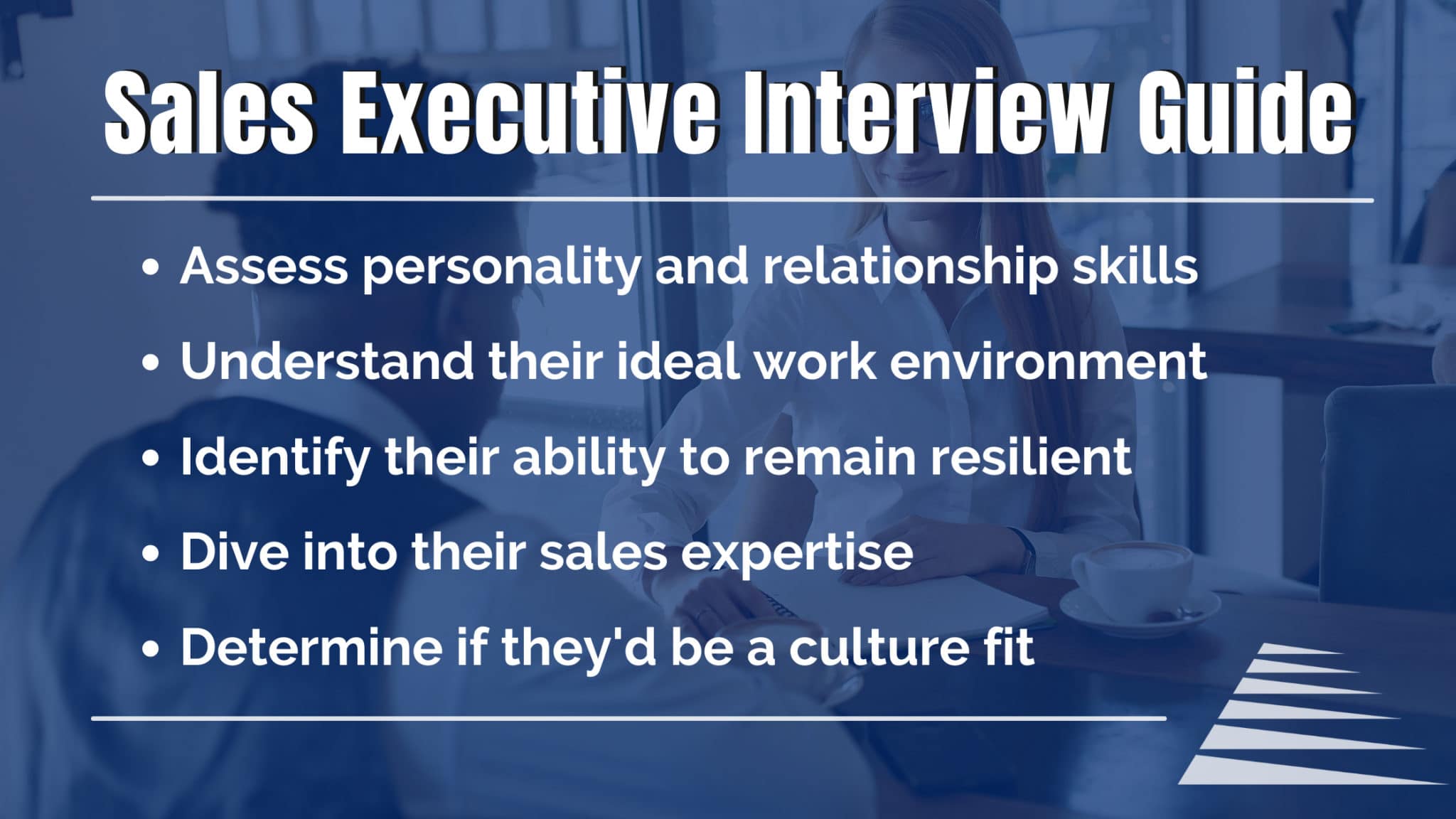





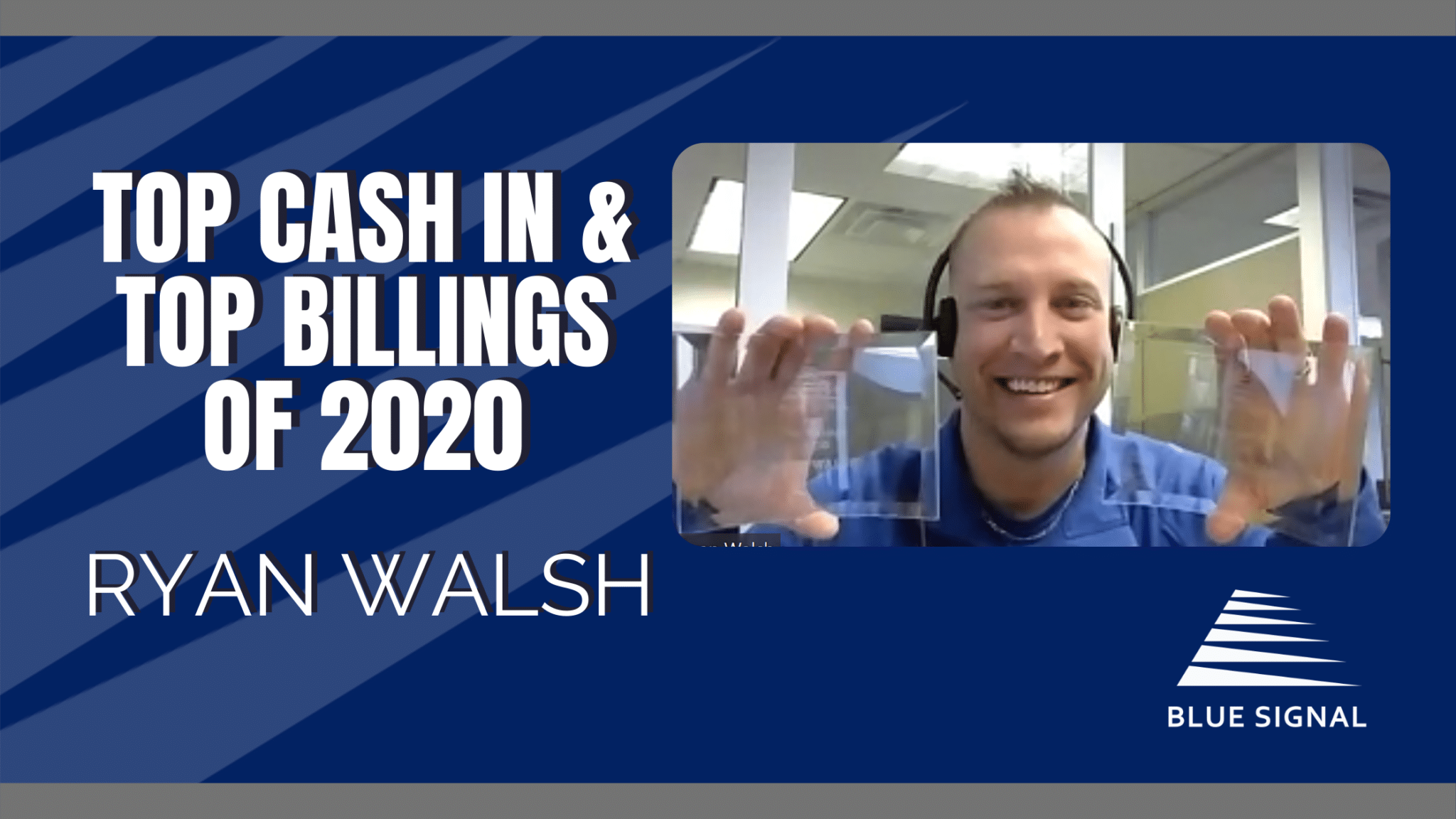
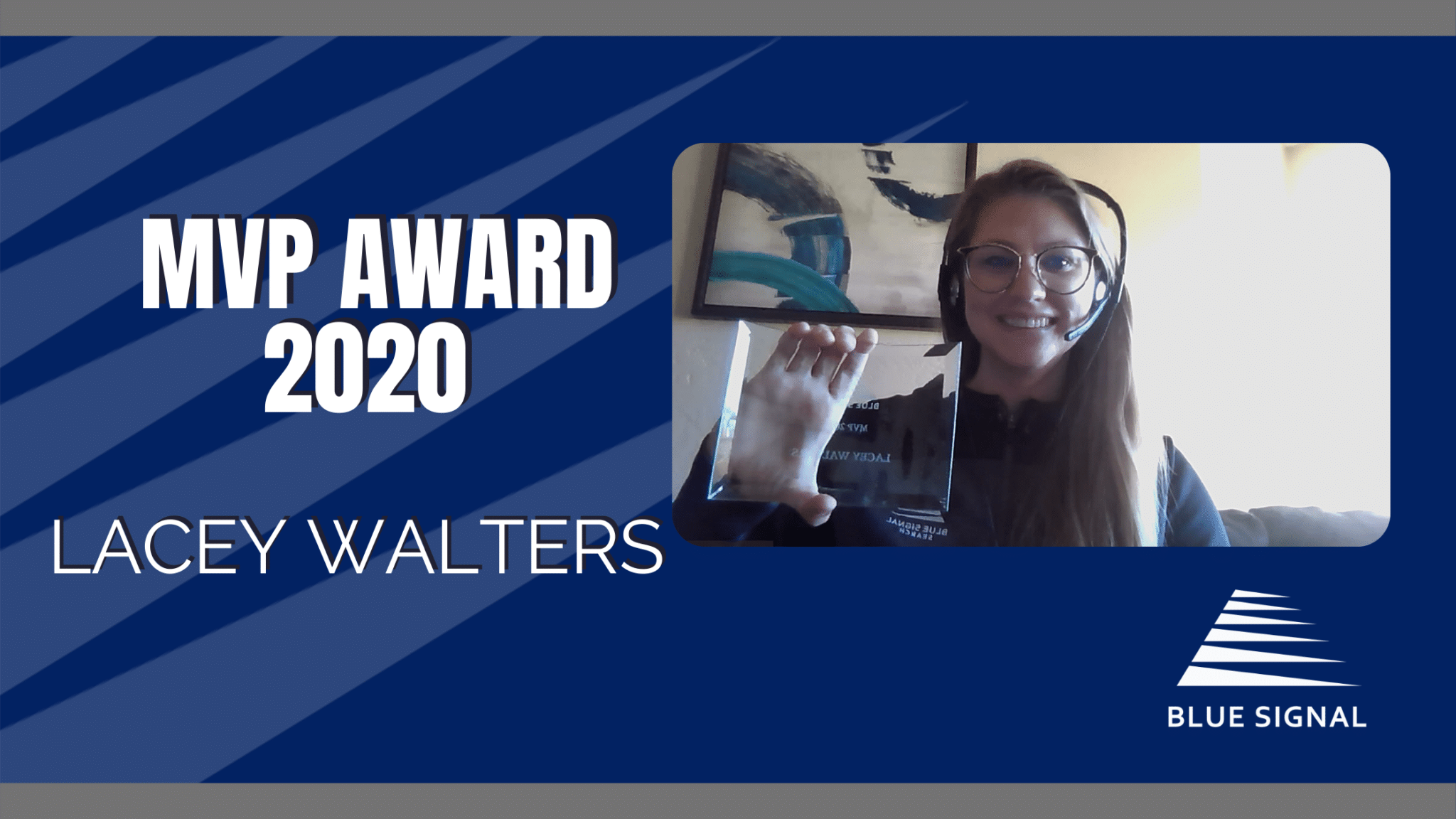

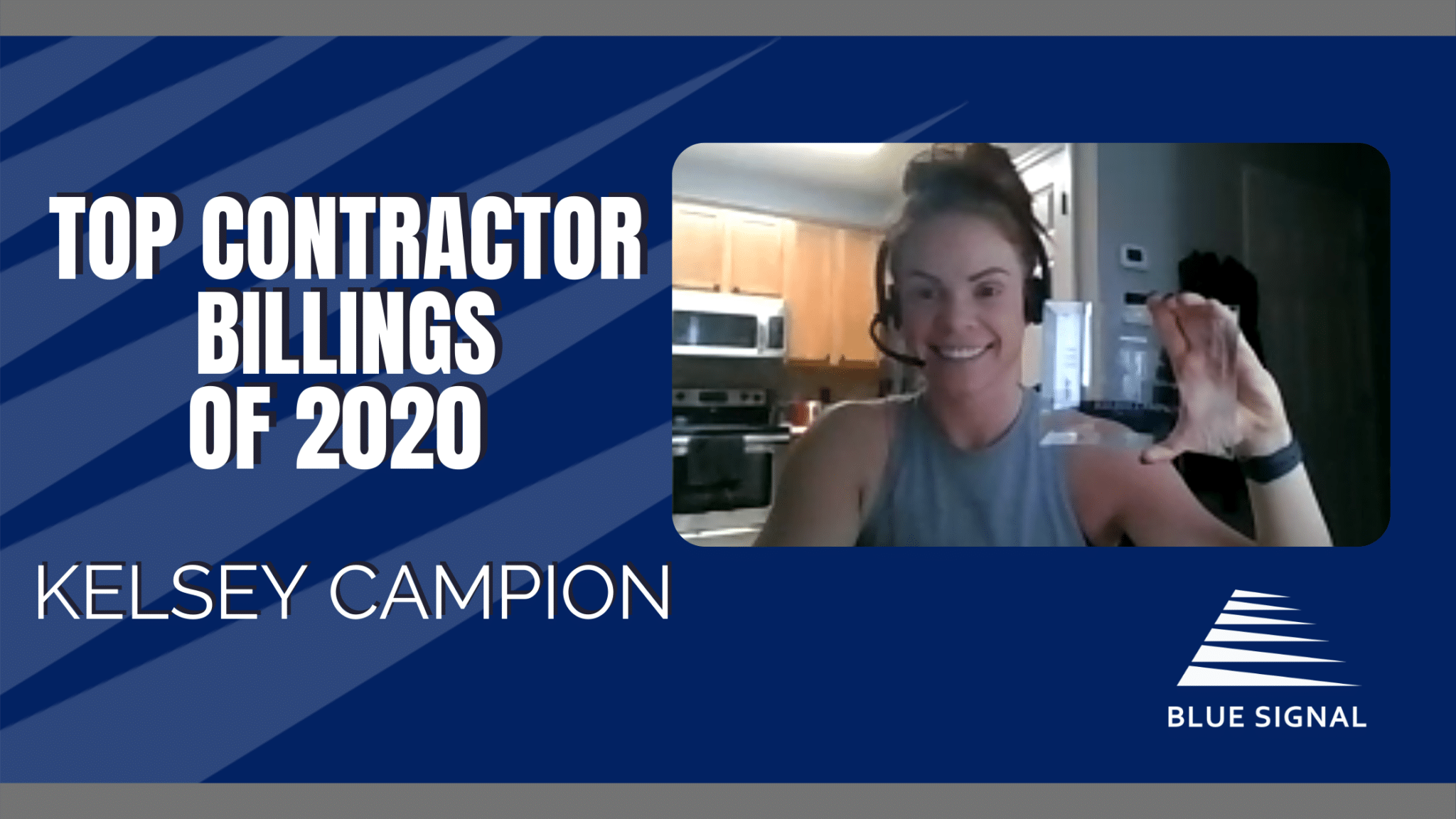
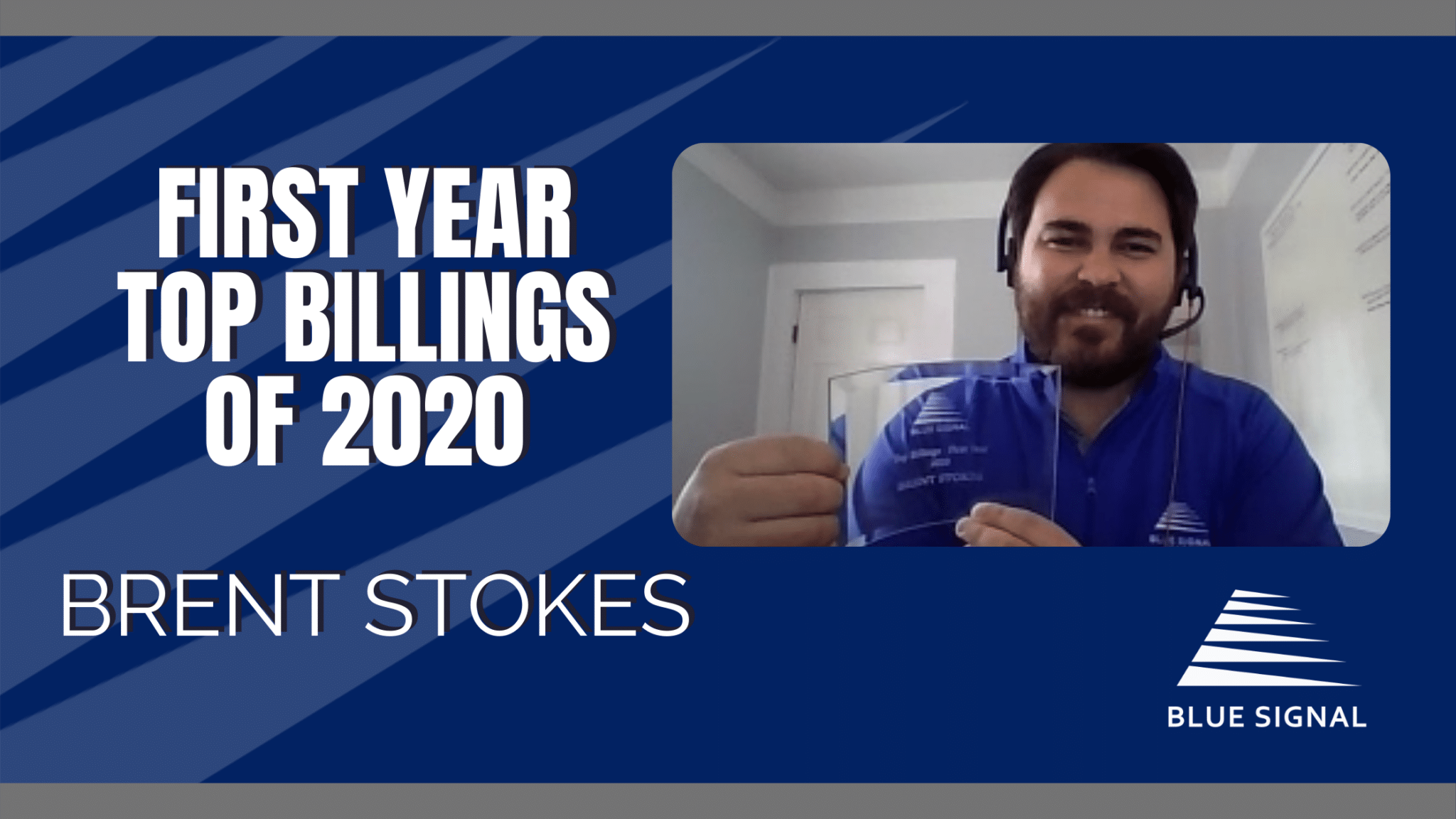
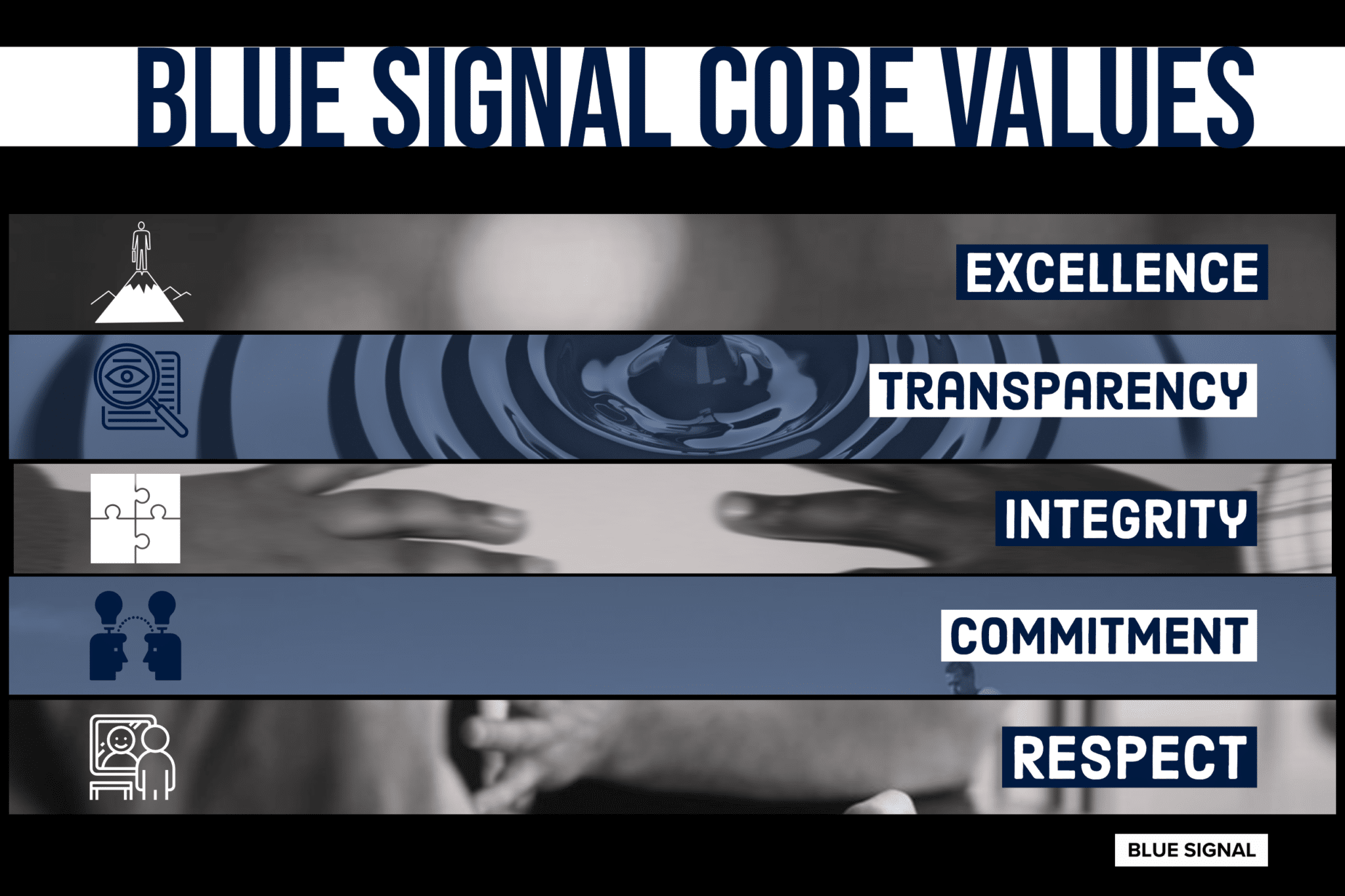
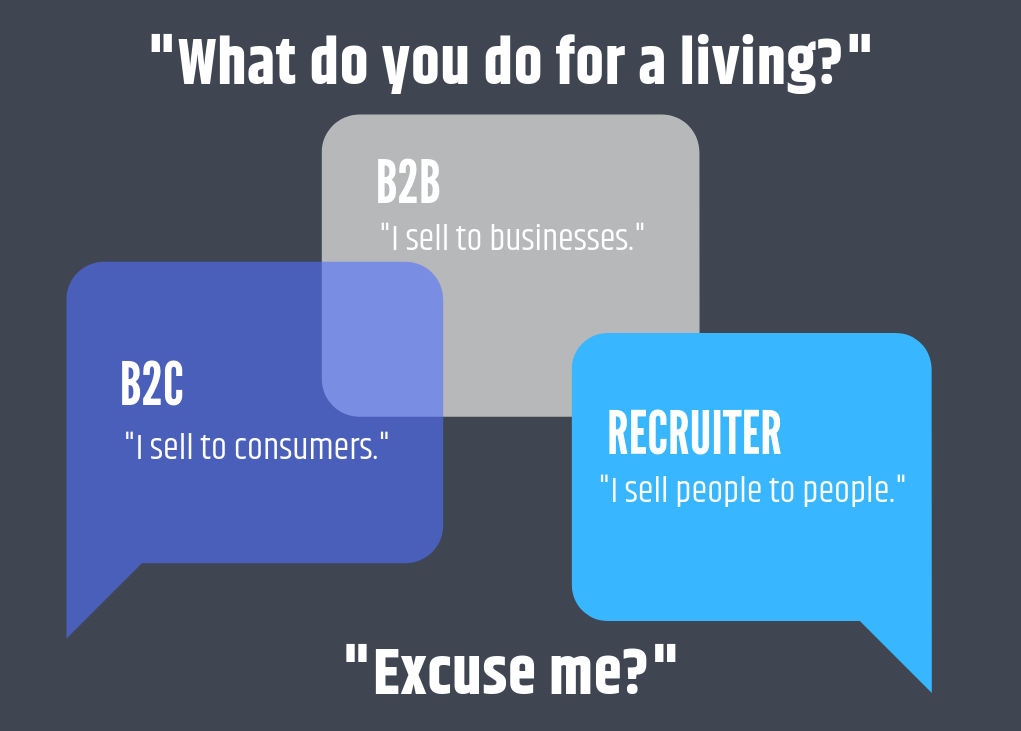
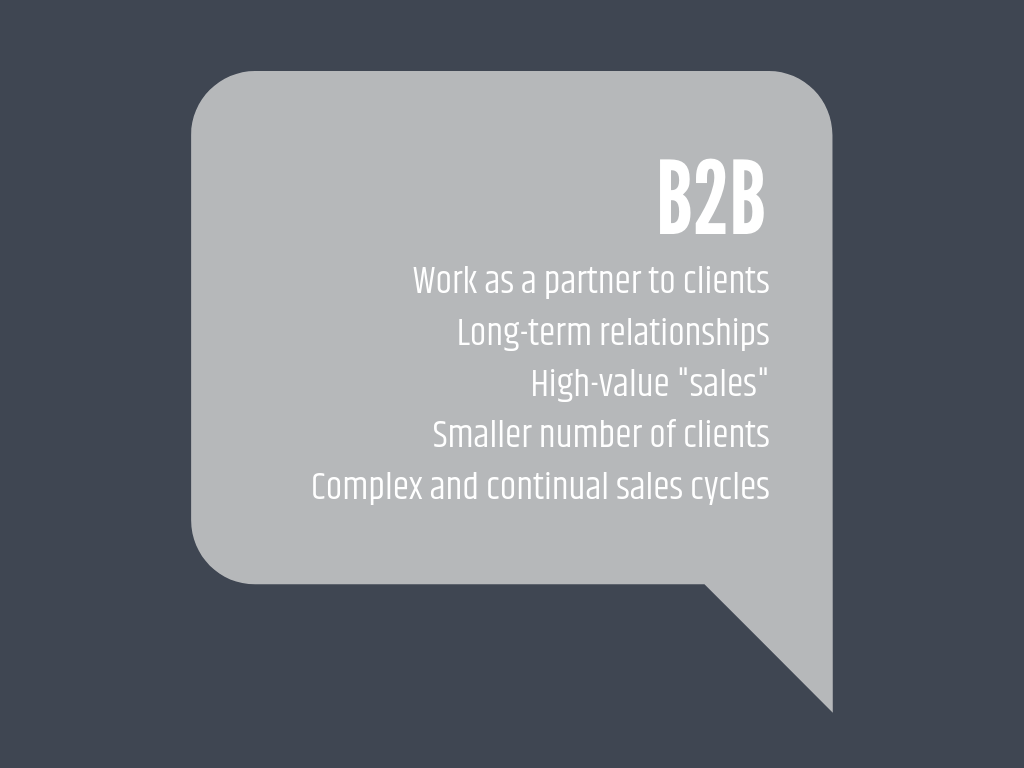
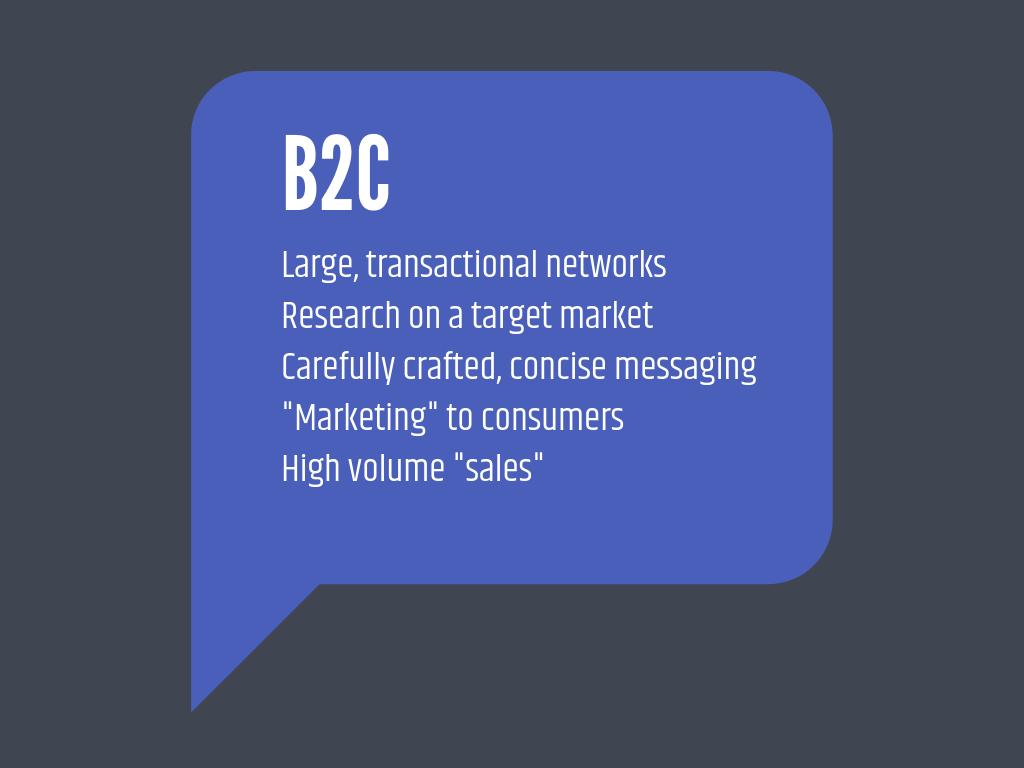



 “Tell me about some of your key metrics.”
“Tell me about some of your key metrics.” Many departments struggle to quantify their ROI. Not sales! Salespeople are fortunate to have easy access to the impact they have had on their company’s bottom line. Most companies publish regular reports showing rankings, quotas, revenue, and other metrics. This is a key advantage because it is direct proof of success.
Many departments struggle to quantify their ROI. Not sales! Salespeople are fortunate to have easy access to the impact they have had on their company’s bottom line. Most companies publish regular reports showing rankings, quotas, revenue, and other metrics. This is a key advantage because it is direct proof of success. Top salespeople have to be big-picture and detail-oriented at the same time. When it comes to closing high-profile deals, they need to anticipate a prospect’s objections and overcome them with solid, compelling data. The same rule applies in an interview.
Top salespeople have to be big-picture and detail-oriented at the same time. When it comes to closing high-profile deals, they need to anticipate a prospect’s objections and overcome them with solid, compelling data. The same rule applies in an interview.